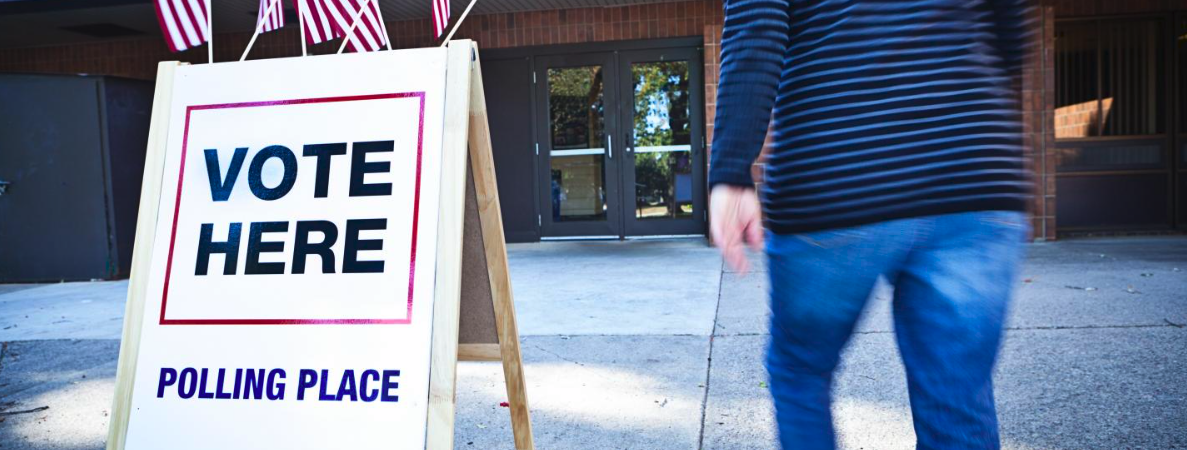
- Details
- By Nicole Hansen
The Nye County Clerk agreed last week to open a polling location on the Yomba Shoshone Reservation in central Nevada. This victory for the Yomba Shoshone Tribe is the result of fierce advocacy by the Tribe and Four Directions, a Native-led organization dedicated to protecting the freedom to vote for Native voters.
The path to victory for the Yomba Shoshone Tribe demonstrates common themes in the fight for Native voting rights. On the one hand, Nevada law can serve as an example of a law designed to expand access for Native voters and facilitate government-to-government cooperation between Native Nations and state and local governments.
However, the failures by the Nye County Clerk unfortunately exemplify the ways tribal governments are too often ignored or disrespected by nontribal governments when it comes to voting rights.
Nevada law permits federally recognized tribes to request a polling place or ballot drop box on their reservation to improve access to elections for tribal citizens. At the end of July 2022, the Yomba Shoshone Tribe used this process to request an Election Day polling location on its Reservation. The Nye County Clerk confirmed the Tribe’s request on August 1.
Unfortunately, Nye County failed to follow through on its obligations. In response to the Tribe’s request, the Nye County Clerk improperly stated that the Yomba Shoshone Reservation is located in neighboring Lander County, rather than Nye County, but remained committed to working with the Tribe and Secretary of State to establish the polling location.
On August 6, a new Nye County Clerk took office and the process apparently came to a halt. When a representative of the Yomba Shoshone Tribe reached out to the Nye County Clerk in mid-October to check on the status of the polling location, the Nye County Clerk claimed, without evidence, that he had not been informed of the Tribe’s request and that it was too late.
As a result, the County would not establish the polling location for the 2022 Election – leaving Native voters in the lurch.
The Yomba Shoshone Tribe and Four Directions acted quickly to counter Nye County’s response, informing them that the request had been timely and was submitted two and a half months prior to the previous clerk. Ultimately, Nye County agreed and committed to opening an Election Day polling place on the Yomba Shoshone Reservation.
Establishing polling locations on reservations like this one is a critical way to ensure that tribal citizens can exercise their freedom to vote. It is not uncommon for Native voters living on reservations to live more than an hour by car from their nearest polling location or county services.
Barriers to the ballot box can be compounded by harsh November weather damaging already rough roads and voters lacking access to reliable private transportation. Worse yet, when polling places are located in towns that border reservations, Native voters commonly report hostility and intimidation by election workers and fellow voters.
When polling places are located on reservations, voters don’t have to travel as far in harsh conditions to exercise their freedom to vote. Giving tribal members the option to vote within their community also helps combat the distrust Native voters too often feel after decades of discrimination by federal, state, and local governments as well as fellow voters.
Moreover, empowering Native Nations to make these requests recognizes their sovereignty and helps facilitate stronger government-to-government relations between tribal, state, and local governments.
With efforts to suppress the Native vote in full force, it is critical for Congress and state legislatures to enact legislation to protect Native voters, including laws that require cooperation with tribal governments and allow Native voters to cast their ballots in polling places that are accessible and welcoming.
Biinjwebinigedaa! - Let’s all Vote!
These stories must be heard.
This May, we are highlighting our coverage of Indian boarding schools and their generational impact on Native families and Native communities. Giving survivors of boarding schools and their descendants the opportunity to share their stories is an important step toward healing — not just because they are speaking, but because they are being heard. Their stories must be heard. Help our efforts to make sure Native stories and Native voices are heard in 2024. Please consider a recurring donation to help fund our ongoing coverage of Indian boarding schools. Donate to Native News Online today and support independent Indigenous-centered journalism. Thank you.
